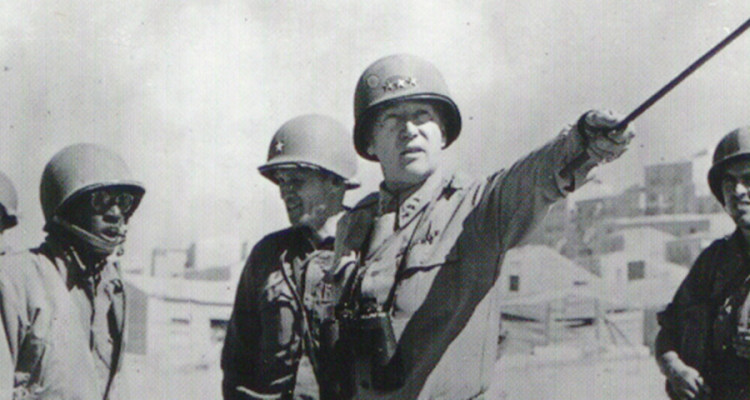Not that it isn’t a fascinating subject, but many of us have over-read the brutality and dangers of World War II. We learn about it from a young age in school, and there are countless documentaries which cover the mass atrocities. So, before picking up my latest read, I wanted a different perspective on the war - something a little more political, and specific to one man. I wanted to delve into the possible conspiracy behind the heroic General George Patton’s death… I’ve read a bit about him, and have delved into the online conspiracy theories regarding his death. So, I was itching to get a trusted source’s take on it, because George Patton’s death was just too weird in my view…
That led me to purchase Bill O’Reilly’s and Martin Dugard’s (the historian of the two), Killing Patton. I’ve read Killing Lincoln and Killing Jesus and thoroughly enjoyed both as Dugard and O’Reilly have a knack for picking up on the nuances of historical figures’ characteristics - giving their readers an inside look. O’Reilly and Dugard don’t take liberties with the facts, and so I wanted to get there opinion on Patton’s bizarre and all too coincidental death.
As they say in the CIA, there is no such thing as a coincidence.
Six Things I Learned After Reading Killing Patton
George Patton could have been president: Being a military man, until recently, was a prerequisite to being President of the United States. Patton had all the credentials to lead the US as he was arguably its most decorated general since Ulysses Grant…
There is a lesson in comparing Patton’s traits and personality to Eisenhower’s, and what they can do for one’s career trajectory. Patton was adored by his troops and the American people. However, he kept the same demeanor on the battlefield as he did in the boardroom, and, naturally, that ruffled a lot of the top brass’ feathers, including Eisenhower’s.
The people who could have opened the gates of power to Patton did not like him as a man. They liked having him as their pit bull, but not as their equal. In contrast, if you look at Eisenhower’s career, you see a man who played the political game to perfection…
Eisenhower was, like Patton, a decorated general, rising to the rank of Supreme Allied Commander in World War II. Yet he never fought on the battlefield even once in his career. After the war, he went on to become Supreme Commander of NATO and eventually President of the United States. How, you ask? Because, above all else, Eisenhower was a diplomat, always looking to balance his goals with that of his peers; whereas Patton took the ‘my way or the highway approach’. Once the war was over, Eisenhower kept his career ascending, eventually reaching the highest of levels, whereas Patton descended and was no longer appreciated by the upper brass.
Patton was apolitical: I always suspected Patton, given his penchant for war and a good fight, was a Republican. But, as it turns out, he was a staunch supporter of FDR and not that warm on Republicans or Democrats. Despite growing up in a California Republican family, he had no loyalty to any political party.
General Patton was disliked by top British leadership: From Churchill to Britain’s most famed general (and many in between), Bernard Montgomery (who, at the request of Eisenhower, was the top general for the Allied forces for a time), Patton was disliked for his bravado and habit of challenging authority. Patton so lusted for American superiority that he raced his troops to Messina ahead of Montgomery (defying orders), and won the historic battle. With a descending superpower status, Britain did not take kindly to this or much of Patton’s bold moves. There are even conspiracies about Churchill plotting to oust Patton from the military for taking the torch from his famed general (unproven, but strong reasons to speculate this was true).
Patton believed in reincarnation and thought he was a famed warrior in past lives: Patton was a different cat. He truly believed his life was meant to be lived on the battlefield and nowhere else. And as he racked up one impressive victory on the battlefield after another, it was documented he believed he lived as legendary warriors in past lives (i.e. Hannibal, leading warrior under Julius Ceasar and a caveman mammoth hunter to name just a few).
Patton cheated on his wife: His infidelity was a stain on his legacy, but his wife, Beatrice (who he routinely wrote letters to throughout the war), remained loyal until and after his death. While away at war for many years, most of the top leadership, including Dwight D. Eisenhower, had affairs. By O’Reilly and Dugard’s account, it was almost expected, and therefore largely tolerated by the wives back home.
Dwight D. Eisenhower disliked Patton: Eisenhower was a true statesman, and Patton’s explosive temper and bravado were, at times, the bane of his existence as the leader of the Allied forces. There were times when the two men were heard screaming at one another, and it was Eisenhower who demoted Patton to a rank that left him virtually without a cause after the war. Throughout World War II, Eisenhower tolerated Patton’s erratic and sometimes abusive behavior of troops because he was the best general in the world. But after the war ended, so did Patton’s career as a military man, thanks to Dwight.
Looking at Patton’s life, one discovers many leadership lessons, both positive and cautionary. However, one thing George Patton always did was remain true to himself, for better or worse. If you are interested in the mystery behind his death and the possible conspirators involved, read Killing Patton by Bill O’Reilly and Martin Dugard. The man certainly had a few enemies, both domestic and abroad, so it’s valid to speculate that the car wreck which inevitably killed him was no accident.
Stay hungry,

Aaron
P.S. As investors and entrepreneurs, it’s paramount we understand history. Anyone who doesn’t does so at their own peril. Subscribe to my newsletter below; you’ll be smarter for it.













